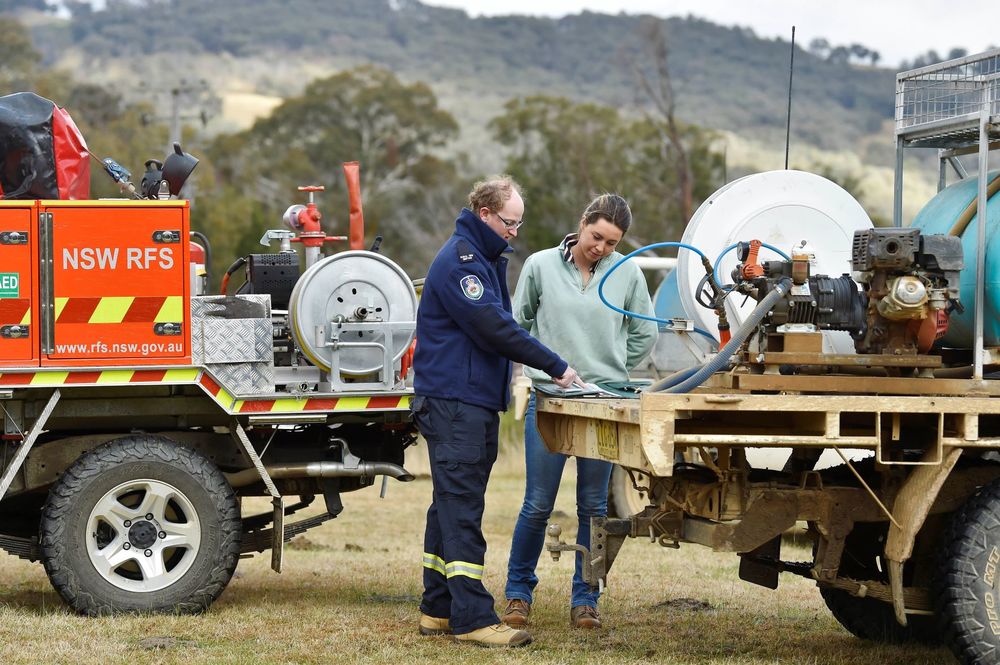RFS welcomes back farm-based fire-fighting rigs
Lee O'Connor
04 September 2022, 9:10 PM
 Individual fire-fighting units are being welcomed back by the RFS. IMAGE Rural Fire Service.
Individual fire-fighting units are being welcomed back by the RFS. IMAGE Rural Fire Service.INDIVIDUAL farm fire units (or FFUs) are back in the fire-fighting armoury for rural landholders thanks to a new framework which will guide their use alongside brigade-based trucks.
The FFUs in the current context are privately owned and operated by landholders and consist of a vehicle-mounted water tank, pump and hose.
On Friday 19 August, the Minister for Emergency Services and Resilience Steph Cooke released an Operational Guide for the use of Farm Fire Units so that farmers can be assured that their use is safe and fully integrated with RFS-supplied brigade-based tankers and equipment.
According to RFS Chief Superintendent Heath Stimson, the initiative is part of a renewed focus on working with land managers and land owners based on the findings of the coronial inquiry that was held in the aftermath of the 2017 Sir Ivan Fire.
Mr Stimson said it acknowledges and builds on the role of farmers and their staff as first responders to many bush fires and grass fires.
"This project was born out of the need to work on our relationships and ensure we deliver a seamless response to fires," Mr Stimson said.
"The project centres around preparation and communication well before a fire, and an integrated approach during and after a fire."
"Part of this 'prepare - communicate - integrate' approach is to encourage brigades and farmers to discuss what's important to them," he said.
"Out our way, more often than not it’s the FFUs who are first on scene and what's happened over the last hundred years or so is that they've worked out what works for them."
"We need to make sure we're safe and everyone understands what we're there to do. We've acknowledged a one-size-fits-all doesn't always work everywhere."
"We're working on getting people back to the table and to talk about how we want to manage fires in that area or on their farm."

Privately-owned FFUs will now be covered by RFS insurance as long as certain criteria are met. IMAGE RFS
Mr Stimson says that for the meantime, the RFS is focusing on the practical integration of privately-owned FFUs, and this includes the complex issue of insurance cover.
"If a vehicle is registered, the FFU is operational and the user has the necessary consent or authority to be there they will be covered and their gear will be covered," he said.
This authority to attend a fire can come from a Brigade Captain or a call to an RFS Fire Control Centre or from the first-arriving RFS truck.
"It's not prescribed to have training or wear PPE (personal protective equipment) but we recommend meeting the standards laid out in the Operational Guide," Mr Stimson said.
"We're not telling farmers what to do, we're partnering with the farmers to promote that seamless integration."
Mr Stimson says the RFS was already working with Transport for NSW on the inclusion of privately-owned FFUs that are unregistered.
He said the project has been almost two years in development.
"It's been a long but fascinating couple of years but the work starts now," he said. "We all need to take it seriously and that's what our commitment will be. We're excited to start the real work."




